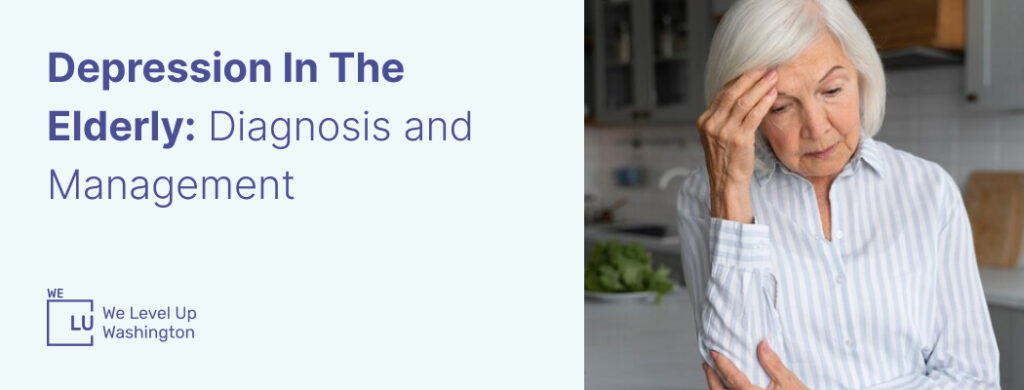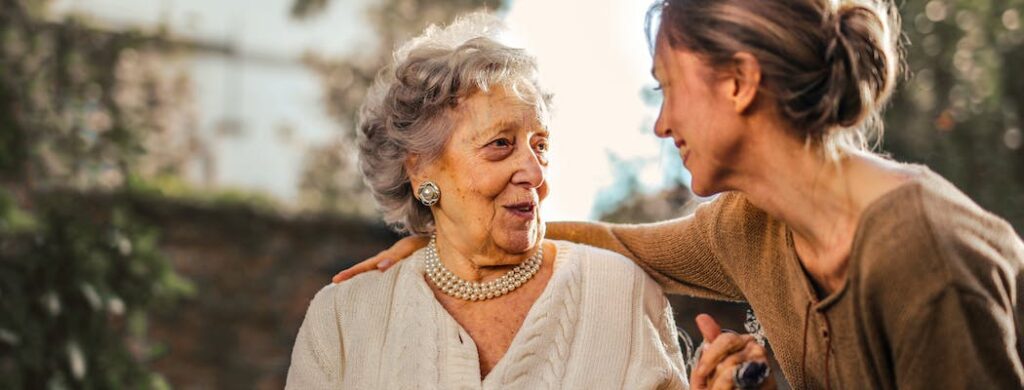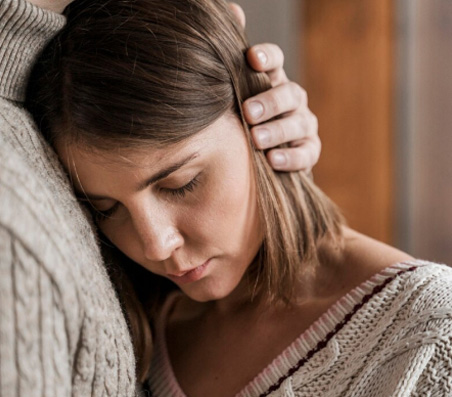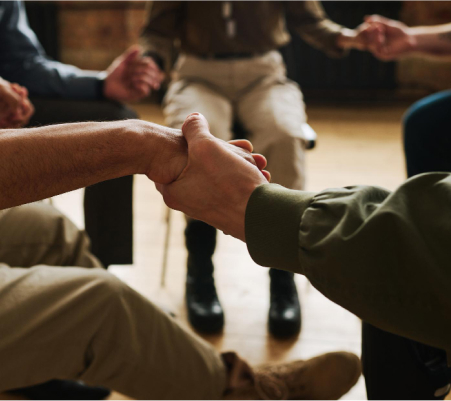We face many challenges that may lead to depression as we age. We face the loss of loved ones, isolation, and physical health problems. Even though many think depression is just a normal part of getting older – it is not. Depression is a serious issue among the elderly. It is a real condition that affects your mental health and well-being. Here at We Level Up Washington mental health center, we are on a mission to raise awareness about mental health issues and, more importantly, to make a real difference in our patients’ lives. We have the knowledge and the determination to diagnose and treat depression, showing that it’s possible to overcome it, no matter your age.
Skip to:
The signs of depression in the elderly
If you’re feeling persistently sad, uninterested in your usual activities, or not yourself lately, it’s important to understand that these feelings can be more than just the ups and downs of getting older. Depression is a real and treatable medical condition, not a normal part of aging. Knowing how to recognize the signs in yourself is the first step toward getting the help you need.

Here are the senior depression symptoms you should look out for:
- You feel sad or hopeless almost every day for most of the day.
- Activities or hobbies that used to bring you joy don’t interest you anymore.
- Your appetite has changed significantly, leading to weight loss or gain.
- You’re either struggling to sleep or sleeping too much.
- You’re constantly tired, even when you haven’t been physically active.
- It’s become difficult for you to concentrate, make decisions, or remember things.
- You feel worthless or guilty about things that wouldn’t usually affect you this way.
- You think about death more often or about harming yourself.
Challenges in diagnosing depression in seniors
Diagnosing depression in seniors can be challenging for several reasons. First, many older adults have other health conditions that can mask or mimic the symptoms of depression. Conditions like heart disease, diabetes, or Parkinson’s disease can cause symptoms that overlap with those of depression, such as fatigue or decreased energy. This makes it harder to identify depression as the root cause of these symptoms.
Additionally, there’s a tendency among seniors to report physical symptoms rather than emotional ones. This is known as somatization. You might find yourself talking more about body aches, sleep problems, or changes in appetite than feelings of sadness or hopelessness. Healthcare providers might focus on these physical symptoms without realizing that they’re connected to your mental health.
Recognizing signs of depression in your elderly loved ones
When it comes to our elderly family members, it’s key to keep an eye out for sure signs that might not just be your typical age-related changes but could be symptoms of depression, especially during springtime when you expect everyone to feel a bit more cheerful. You see, with age, folks often deal with chronic illnesses, and it’s not uncommon for conditions like Parkinson’s disease to bring on depression.
So, what should you look out for? Well, if you notice they’re not as sharp as usual, losing focus, or seem off in their thinking, it might not just be “getting”old”—sometimes, these cognitive shifts are mistakenly chalked up to dementia when, in fact, depression could be the real culprit.
Get Help. Get Better. Get Your Life Back.
Searching for Accredited Dual Diagnosis Mental Health Centers Near You?
Even if therapy failed previously, or are in the middle of a difficult crisis, we stand ready to support you. Our trusted behavioral health specialists will not give up on you. When you feel ready or just want someone to speak to about counseling alternatives to change your life call us. Even if we cannot assist you, we will lead you to wherever you can get support. There is no obligation. Call our hotline today.
FREE 24/7 Dual Diagnosis Mental Health Services HotlineAnd then there’s how they feel and act. Do they seem pretty down, not enjoying things they used to, maybe eating too much or too little, having trouble sleeping or wanting to sleep all the time, feeling tired, or talking about feeling worthless or guilty over things that don’t quite make sense? These are all red flags.
Plus, if there’s any talk of not wanting to be around anymore or, worse, actual attempts to end their life, it’s beyond a red flag. That’s when you need to get help immediately.
The importance of proper diagnosis of depression in older adults
Understanding the connection between physical and emotional symptoms is very important for healthcare workers. They need training to see past just the physical complaints and think about depression, especially when there’s no clear medical reason for these symptoms.
Here’s what you can do to help ensure you get the correct diagnosis:
- When you talk to your doctor, nurse, or caregiver, don’t just mention your physical symptoms. Tell them if you’re feeling sad, hopeless, or have lost interest in things you used to enjoy.
- Write down your physical and emotional symptoms, how often they happen, and how they affect your daily life. This can help your healthcare provider see the full picture.
- it’s okay to ask, “Could my feelings be related to depression?” if your doctor is focused on your physical symptoms. Still, you think depression might be the issue,
- Remind your healthcare provider to consider how other health conditions might be affecting your mental health, and vice versa.

Is depression in the elderly common in Washington?
According to a survey by the U.S. Census Bureau conducted between October 5 and 17, 2022, about 241,500 older adults said they felt depressed on all or most days in the previous week. This means that many people are dealing with these feelings regularly, which makes this issue a significant concern.
Depression can profoundly affect the quality of your life. It may cause you to lose interest in being social, be less motivated to take care of yourself, and stop enjoying hobbies and activities that used to bring you joy. Depression can make you feel isolated and can impact your physical health as well.
End the Emotional Pain. Get Your Life Back.
Feeling Depressed, Anxious or Struggling with Mental Health Illness? Get Safe Comfortable Mental Health Dual Diagnosis High-Quality Therapy From Counselors That Care. Begin Your Recovery Now.
Hotline: (509) 348-4077

Specific types of depression in the elderly
Geriatric depression can appear in different forms. Each one requires a different approach to treatment. Two specific types you should know about are situational depression and unipolar major depression.
Situational depression
Situational depression, also known as adjustment disorder with depressed mood, happens in response to a specific event or change in your life. This could be the loss of a partner, moving from a family home to assisted living, or dealing with a serious health diagnosis. Situational depression is when your reaction is more intense and lasts longer than would typically be expected, even though it is normal to feel sad or upset during these times
Symptoms of situational depression might include overwhelming sadness, worry, or difficulty enjoying activities you used to like. Even though it’s triggered by a specific event, the impact on your daily life can be significant.
Treatment for situational depression often includes counseling, where you can talk about your feelings and learn coping strategies. Support groups can also be helpful, allowing you to connect with others who are going through similar experiences.

Unipolar major depression
Unipolar major depression is what many people think of when they hear the word “depression.” It involves a persistent and deep sadness or a lack of interest in activities, among other symptoms. These feelings last most of the day, nearly every day, for at least two weeks. Unipolar major depression affects your ability to function in daily life and isn’t tied to a specific event like situational depression.
Symptoms can include changes in appetite or weight, sleep disturbances, fatigue, feelings of worthlessness or excessive guilt, difficulty thinking or concentrating, and thoughts of death or suicide.
The treatment for unipolar major depression often involves medication, such as antidepressants, along with psychotherapy. This combination can effectively manage symptoms and improve quality of life.
Why you need professional help
Depression is a complex condition, and you will need professional help to overcome your mental health challenges. Here is how inpatient mental health facilities in Washington state will give you:
- Specialized care: Inpatient facilities provide tailored care from a team of experts in mental health in the elderly, ensuring a comprehensive approach to treatment.
- 24/7 support: Expect round-the-clock support and immediate intervention, vital during mental health crises.
- Intensive treatment: The intensive treatment programs available at our inpatient facilities can offer care beyond what outpatient services can provide.
- A break from daily stressors: Being in an inpatient facility allows patients to focus solely on recovery without the distractions and pressures of everyday life.
- Building coping skills: In the facility, patients pick up important skills and make lifestyle adjustments that help them manage better in the long run, aiming for a healthier mental state.

Our facility’s approach to elderly mental health issues
According to recent data from the CDC’s ESSENCE system, over 0.3% of emergency department (ED) visits by the elderly in Washington were for suicide ideation. This shows how important it is to recognize and address elderly mental health issues. We at We Level Up Washington emphasize the importance of early detection, personalized care, and a supportive environment at our depression treatment Washington center to ensure you do not feel in your struggles. Our approach includes the following:
- Cognitive behavioral therapy
- Interpersonal therapy
- Problem-solving therapy
- Electronconvulsive therapy
- Pharmacological treatment
Cognitive Behavioral Therapy (CBT)
CBT is a form of psychotherapy that helps you change negative thoughts and behaviors that make your depression and other elderly mood disorders worse. It deals with problems you face now and offers tangible ways to handle them. CTB will help you deal with big changes like retirement or losing a loved one. It will teach how to cope and adjust healthily.
First-class Facilities & Amenities
World-class High-Quality Mental Health Services & Behaviroal Health Substance Abuse Treatment
Rehab Centers TourRenowned Mental Health Centers. Serene Private Facilities. Inpatient Rehab Programs Vary.
Mental Health Helpline: (509) 348-4077Proven recovery success experience, backed by a Team w/ History of:
15+
Years of Unified Experience
100s
5-Star Reviews Across Our Centers
10K
Recovery Success Stories Across Our Network
- Low Patient to Therapist Ratio
- Comprehensive Dual-Diagnosis Treatment
- Complimentary Family & Alumni Programs
- Coaching, Recovery & Development Events
- Comfortable Onsite Medical Detox Center
Interpersonal Therapy (IPT)
IPT helps improve how you communicate and get along with others. It looks at problems like dealing with grief, changes in life, and arguments that can lead to depression in older people. IPT works by helping you feel less alone and building stronger support networks, which is very important for your mental health.
Problem-Solving Therapy
This therapy teaches you how to solve problems that make you feel depressed. It’s useful because it gives you tools to handle difficult situations, like health issues, money worries, or losing independence. Learning to solve problems better makes you feel more in control and less depressed.
Electroconvulsive Therapy (ECT)
ECT is a treatment for severe depression that hasn’t gotten better with other treatments. It uses a short electric shock to the brain while the patient is asleep from anesthesia. ECT is safe and works quickly, which makes it a good option. It can quickly help with severe senior depression symptoms, even when there’s a risk of suicide or psychosis.

Pharmacological treatments
When treating major depression in the elderly, it’s important to consider how medicines can help manage symptoms effectively, keeping in mind the unique needs of older adults. The body’s response to medication can change with age, and older adults often take other medicines for different health issues, which can affect how depression medications work.
Medicines for major depression
The most common types of medicines for major depression in the elderly include Selective Serotonin Reuptake Inhibitors, Serotonin and Norepinephrine Reuptake Inhibitors, Tricyclic Antidepressants, Monoamine Oxidase Inhibitors.
Selective Serotonin Reuptake Inhibitors can be perceived as a gentle introduction to antidepressants because they usually come with fewer side effects. What they do is they boost a chemical in your brain called serotonin. Serotonin plays a big part in how happy or calm you feel. Some of the names you might hear are Zoloft, Prozac, and Celexa. They’re pretty standard, and a lot of people start their treatment with one of them.
The SNRIs (Serotonin and Norepinephrine Reuptake Inhibitors) pump up serotonin and another brain chemical called norepinephrine. This chemical helps with mood and energy. Effexor and Cymbalta are a couple of examples. They’re especially good for helping out older adults who are feeling down.
Then there are Tricyclic Antidepressants or TCAs. They’re not the first pick for older people because they can have some serious side effects, like making you dizzy or messing with your blood pressure. So, doctors tend to be cautious with these and often save them for when other meds don’t work.
Lastly, there’s a group called MAOIs (Monoamine Oxidase Inhibitors) that are like the emergency brakes of antidepressants. They’re strong and can really help, but you’ve got to be careful with what you eat and what other meds you take with them, so they’re not used very often.

Considerations for the elderly
When prescribing medications for older adults with depression, there are several factors to take into account. You might be more sensitive to medications so your doctor will start with lower doses and adjust as needed. Also, some medications can be more severe and cause issues with balance, lead to falls, or interact with medications for other health conditions. This is why monitoring for side effects is a must. Also, if you have other issues, such as heart disease or diabetes, it can influence which antidepressant the doctor chooses to avoid worsening these conditions.
Support beyond treatment
Our mental health services in Spokane WA, include family and alumni support to you and your family, as we know the importance of a strong support network for aging and depression. Additionally, we provide access to personal development events, including life, business, and recovery coaching.
We do this to help you and your family manage the challenges of recovery, enhance personal growth, and achieve success in both personal and professional life. We want to give you ongoing support for elderly mental health issues and lead you to a happier and more peaceful life.
World-class, Accredited, 5-Star Reviewed, Effective Mental Health Dual Diagnosis Programs. Complete Integrated Inpatient Rehab with Free Post Discharge Therapy Planning.
Hotline: (509) 348-4077End the Emotional Pain Rollercoaster. Gain Stability & Happiness Through Recovery Treatment. Start Mental Health Counseling Today. Get Free No-obligation Guidance by Behaviroal Health Specialists Who Understand Mental Health Recovery.
Get the support you need and improve your life
Depression is not just a part of your life, and it certainly isn’t something you should ignore. Recognize the signs of late-life depression, take them seriously, and seek help from professionals with expertise in depression in the elderly. Your mental health is just as important as your physical health. Don’t let stigma or uncertainty hold you back. You deserve to live well and feel your best.
Sources:
Ziegler, A. (n.d.). Older Adult Behavioral Health Impact Situation Report. Washington State Department of Health. https://doh.wa.gov/sites/default/files/2022-11/821156-COVID19OlderAdultBehavioralHealthSitRep-202210.pdf
Experience Transformative Recovery at the We Level Up Treatment Center.
See our authentic success stories. Get inspired.
Get the help you deserve.



Start a New Life
Begin with a free call to a behavioral health treatment advisor. Learn more about our dual-diagnosis programs. The We Level Up treatment center network delivers recovery programs that vary by each treatment facility. Call to learn more.
- Personalized Care
- Caring Accountable Staff
- World-class Amenities
- Licensed & Accredited
- Renowned w/ 5-Star Reviews





